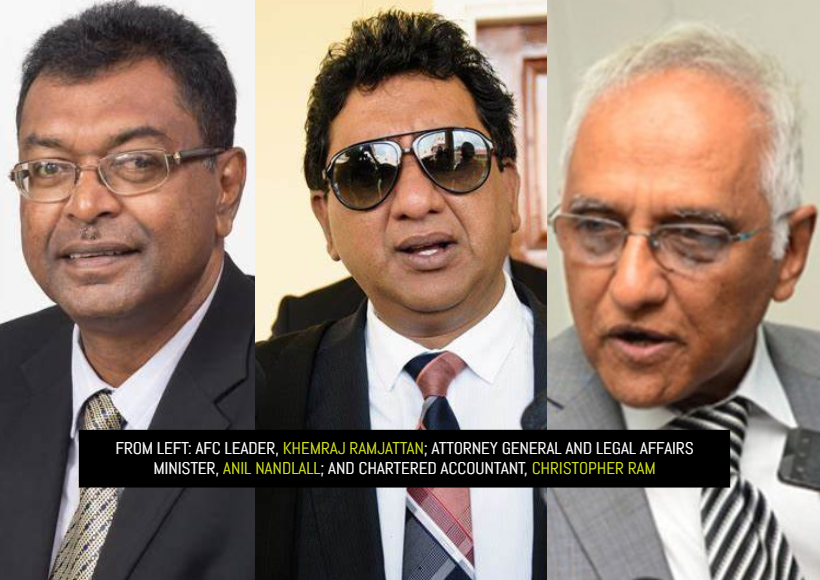Leader of the Alliance For Change (AFC), Kemraj Ramjattan has added his voice to the ongoing debate on the overstated nature of the Natural Resource Fund (NRF). At a press conference on Friday, Ramjattan said he supports the disclosure by Chartered Accountant, Chris Ram that the fund is overstated by US$275 billion.
Ram had argued in his Stabroek News column that the money ought to be paid to the Guyana Revenue Authority (GRA) to satisfy the tax obligations of ExxonMobil and its partners in the Stabroek Block. After all, this is what Guyanese authorities agreed to do as per the provisions of the Stabroek Block Production Sharing Agreement (PSA).
Ramjattan said he supports this view even though the Attorney General and Minister of Legal Affairs, Anil Nandlall insists that Ram’s interpretation is incorrect.
Readers would recall Nandlall’s position that, “There is absolutely no provision in the NRF Act which permits or authorises deduction of taxes for on behalf of the Guyana Revenue Authority.
“In fact, any unauthorised withdrawal from or interference with monies from the fund constitutes an offence, upon conviction, is liable to imprisonment and several million dollars in fine.”
He added that whether paid to GRA as taxes or to NRF, the taxes due are in the government’s accounts and are still transferred to the Consolidated Fund as needed.
In his counter arguments, Ramjattan stressed that the NRF is a sovereign wealth fund created under a special and separate law to govern, manage, invest, and use the oil revenues. He emphasized that the structure and purpose of the NRF to handle oil earnings is therefore separate from the Consolidated Fund, which operates as the financial backbone for ministries, departments, and budget agencies.
According to Ramjattan, the payment of taxes for ExxonMobil, as per the terms of the 2016 Production Sharing Agreement, must be made from the revenues of the Guyana government. This payment, he argued, should be channeled through the GRA and subsequently deposited into the Consolidated Fund. He stated, “Since this Government believes in sanctity of contract, it necessarily follows that the corporate taxes must be paid to GRA and placed into the Consolidated Fund.”
Ramjattan also expressed concern about the potential misuse of the NRF, stating, “There is thus a method to the madness of overstating the NRF to the extent of an equivalent understatement of the Consolidated Fund.” In conclusion, Ramjattan insists that Ram’s position is correct, that the funds must be paid over to GRA.











